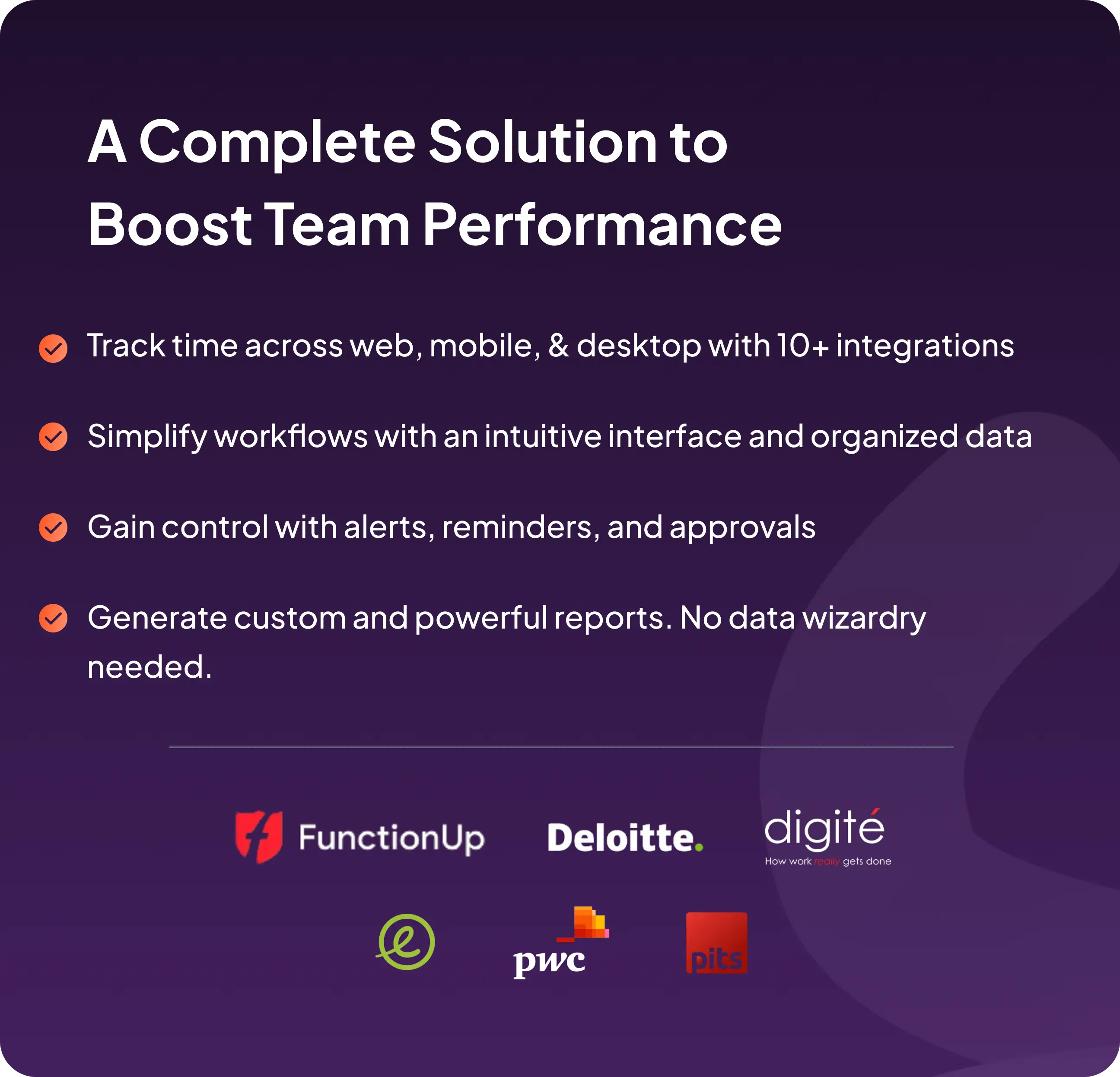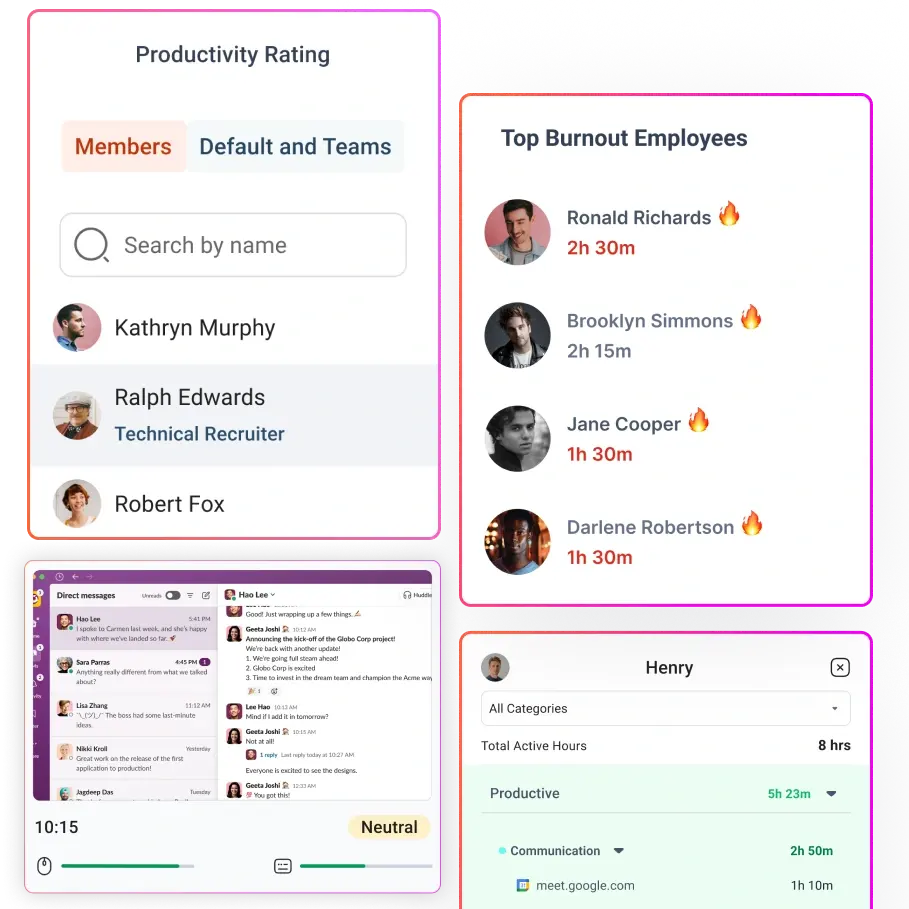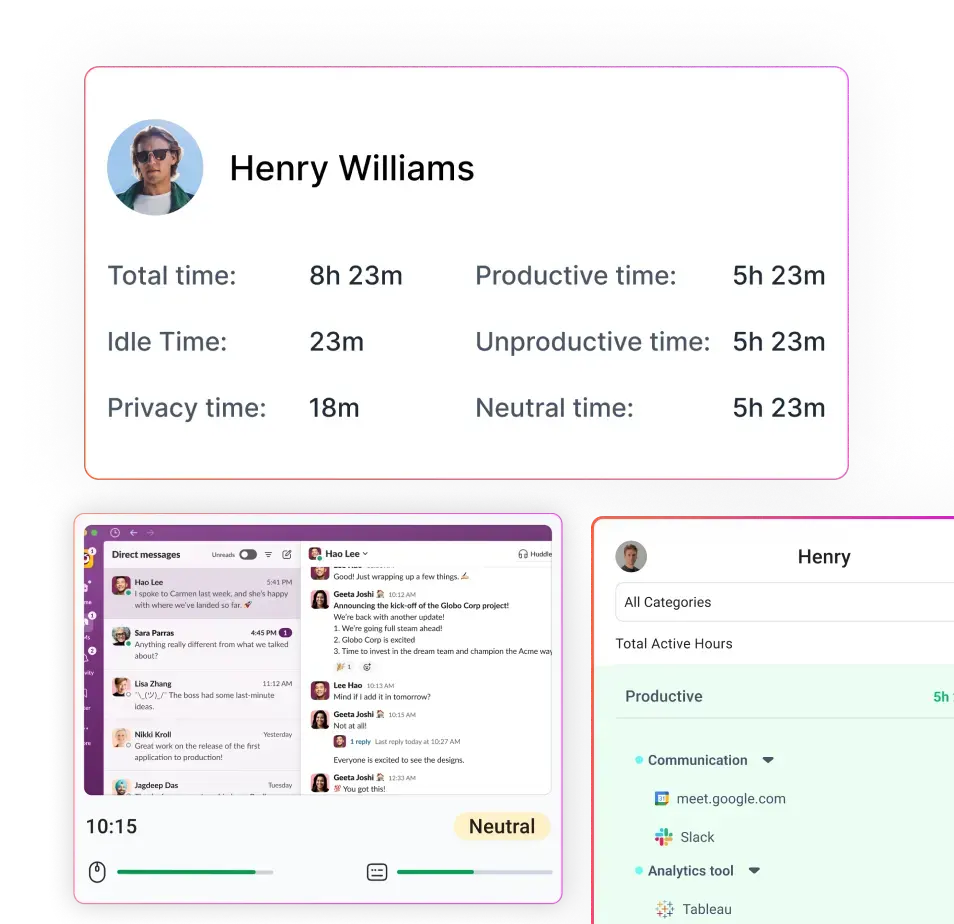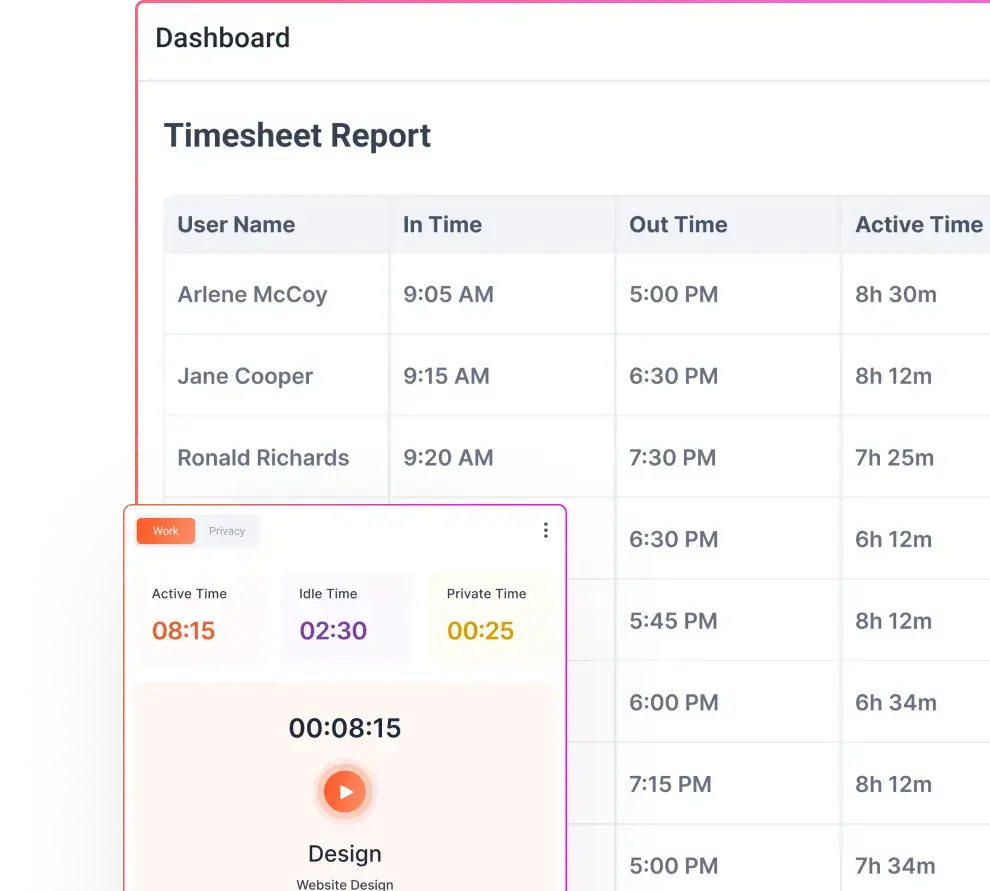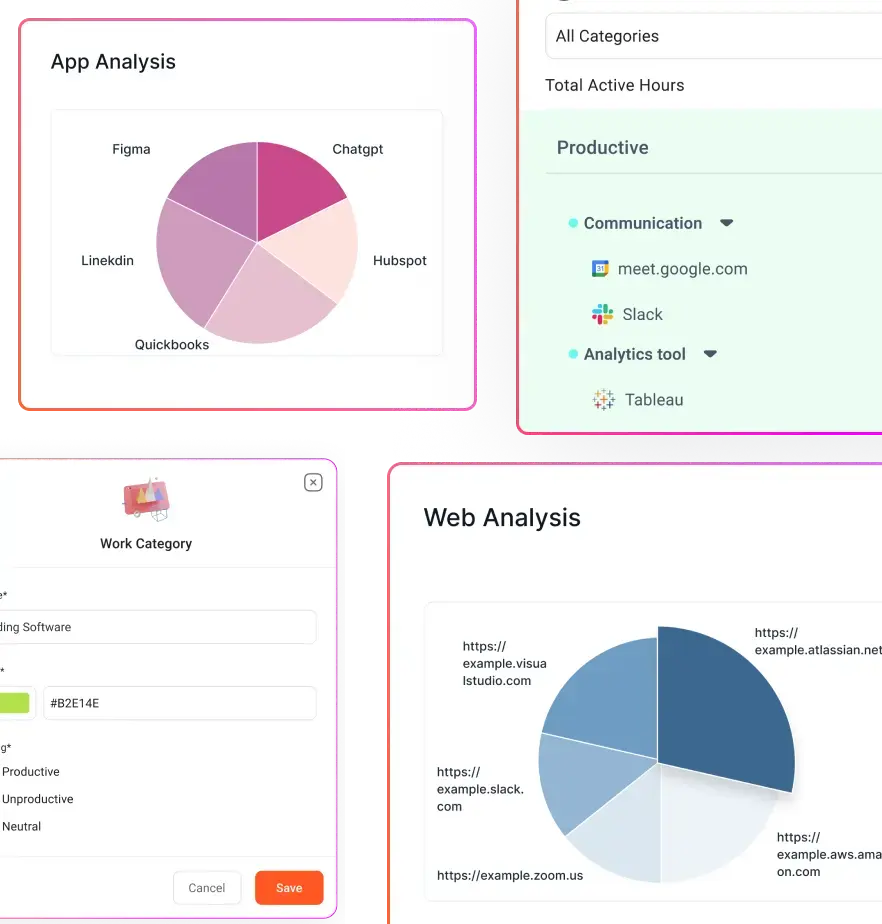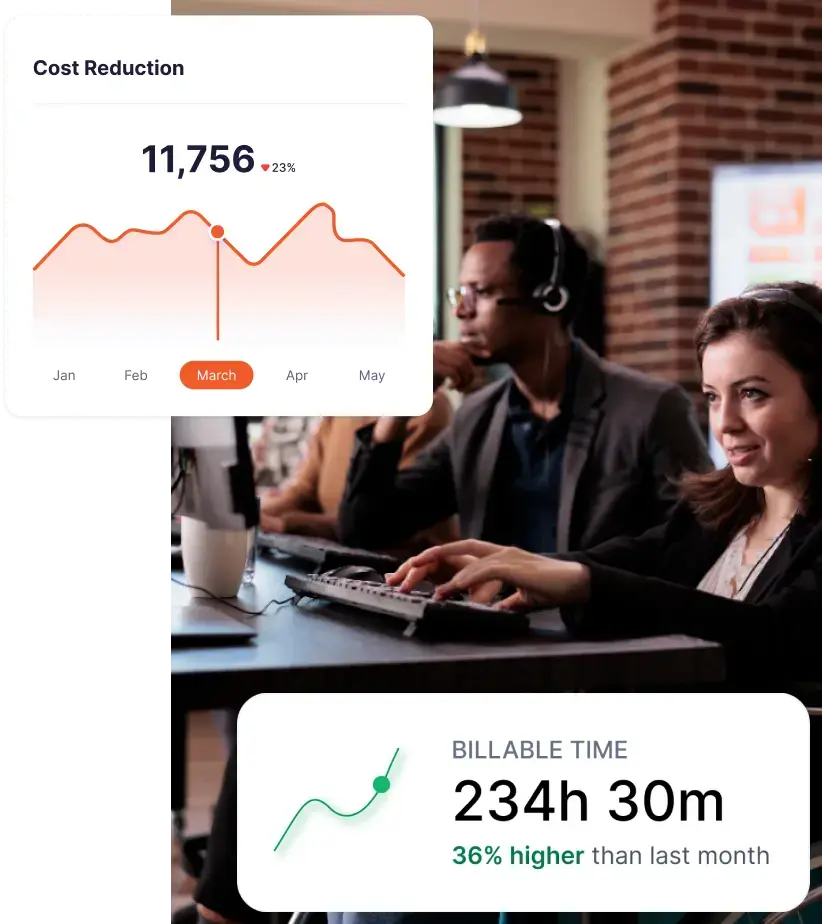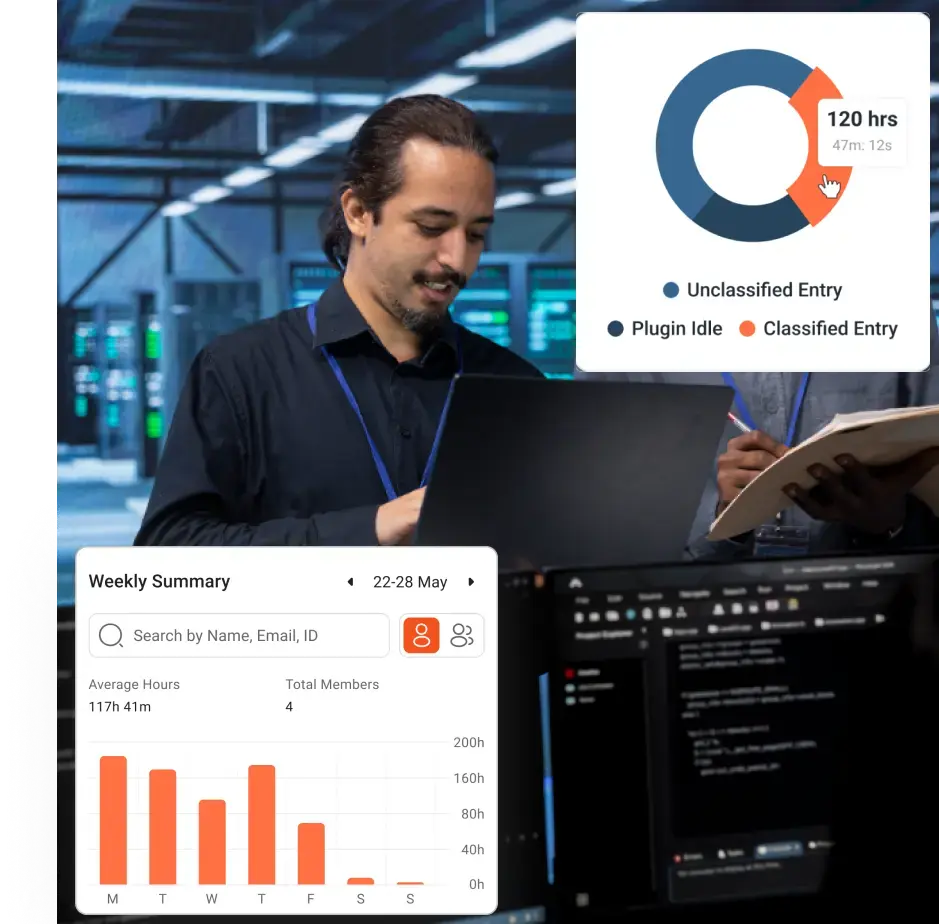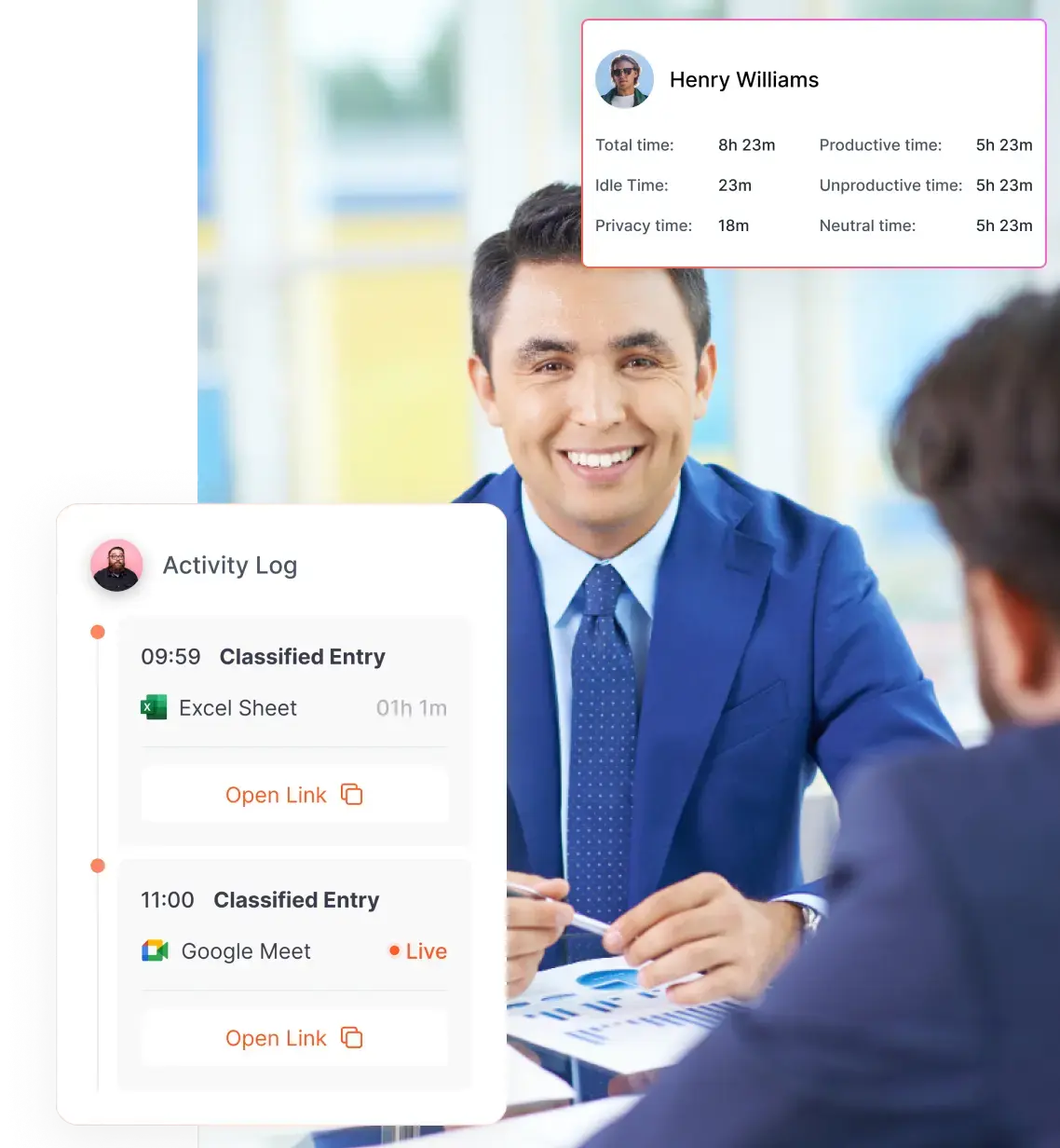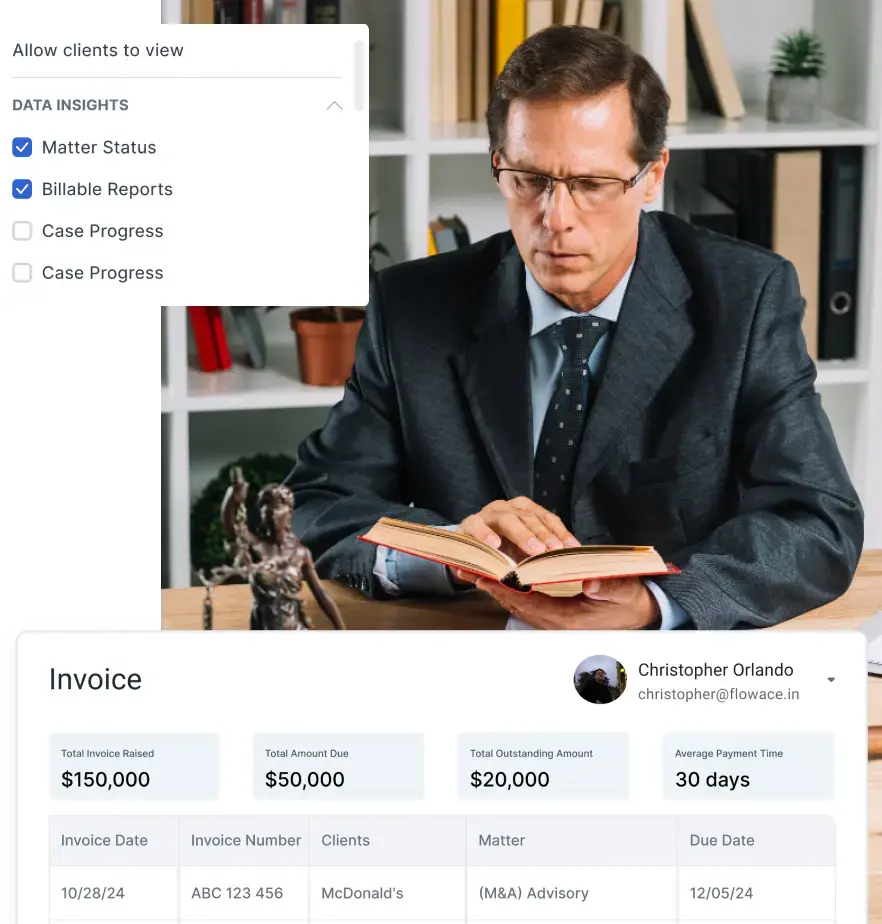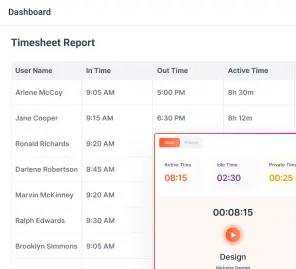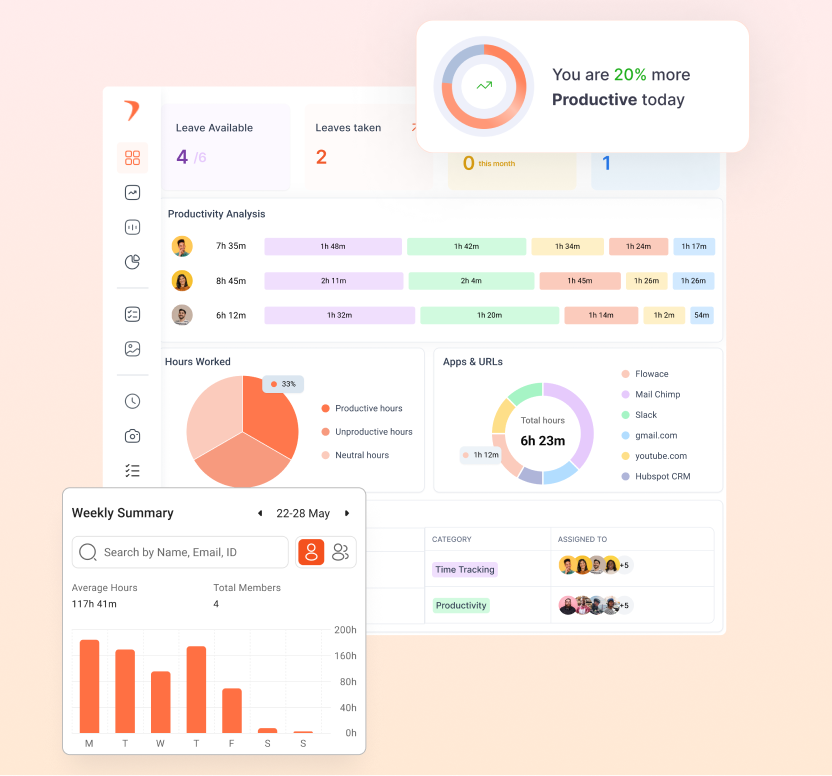Tips to Accelerate Employee Productivity
“You have 10 new emails!”,
“We’re already in the meeting. When will you join??”,
{Slack knocking non-stop with its notorious “Knock Brush” noise in the background},
“I have so much work to do. But… this would be my last snack break. I promise.”
“What’s new on Instagram? Just two minutes of scrolling. Big deal!?!”
Sounds familiar, eh?
Online distractions, short/long breaks, back-to-back meetings, colleagues stopping by and interrupting work, and so on. Though these breaks and meetings are meant to enhance productivity, too much of anything is detrimental.
Thus, in this blog, we’re going to discuss 8 pro tips that employers can adopt to bring maximum efficiency to their offices. But first, let’s understand how a low-yielding workforce affects companies.
How Does Poor Productivity Affect Businesses?
Whether it’s a remote/hybrid team or a workforce hitting the office premises every day, companies always strive to churn out more from their workforce. To address productivity shortcomings, they invest in tools, organize employee productivity programs, and whatnot. It’s a fact that poor productivity costs employers $1.8 trillion each year. (Source: Productivity Prohibitors infographic created by SurePayroll).
Unbelievable, right?
And even with these efforts, they seem to yield little to no result. Why? you may ask. It’s because productivity enhancement is an internal process. Any external motivation can only boost employees’ moods temporarily, but to make productivity a culture, companies need to strategize better. Let’s know how!
8 Tips To Accelerate Team Productivity Under One Month
- Adopt a deep work system
- Deep work in a WFH environment
- Deep work in a Work-from-Office environment
- Increase flexibility
- Perform time audits
- Wellness programs & Routine checkups
- Cut down on meetings
- Make sure attendance isn’t the only proof of work
1) Adopt a deep work system
Business writer & bestselling author Eric Barker calls deep work the superpower of the 21st century. And he can’t be more accurate!
We’re living in an era overloaded with distractions. A text from the boss that you can’t miss, colleagues popping by your cubicle or inbox, ringing social media notifications, or the hundreds of self-inductive distractions that we find fairly complex to count,.
We’re just a notification away from letting ourselves get out of our streamlined workflow. And research suggests that it takes people 23 minutes & 15 seconds to regain focus after an interruption. Such distractions and low productivity end up leaving employees more distressed and frustrated. Needless to say, all of this happens at the expense of the company that they’re working for.
This is why adopting a deep work culture is something that every company must consider if they want to make their team super-efficient.
How can you encourage a deep work culture in your office?
2) Deep work in a WFH environment:
If your team is working from home, it is easier to do deep work.
- Make them aware of deep work and its importance. You can add the book Deep Work, written by Cal Newport, to the company’s employee onboarding kit itself.
- Simply ask them to put themselves on mute & put a status on their profile if they’re working on something that needs undivided attention.
For example, we at Flowace, use Slack to collaborate with our team. We put ourselves away by dropping a simple note and a timeline when we’re working on a focus-demanding task.
- Make this normal if some team member doesn’t attend a meeting or respond to an email/text because of work.
3) Deep work in a work-from-office environment:
When you’re working from the office premises, things work differently. Co-workers visiting each other time-to-time, telephone & cell phones ringing, constant chattering, etc. To avoid this, employers or managers can opt for innovative styles, such as
- Encourage a no-noise environment. You can start a fun challenge every day for a definite period and give reward points to the employees who stay silent for the longest. You can also include keeping their cell phones on silent or away. This might prevent the members from interrupting other employees unnecessarily, at least during those hours.
- Keep an anonymous review system. You can create a feedback system to study the behavior of your employees where team members are asked to fill out the form anonymously. This might solve the problem, & you can understand which employee needs guidance, that too, without creating any conflicts among the team members.
- Organize meditation, exercise sessions, & innovative challenges
Employers lose $153 billion every year due to employee obesity & other chronic health issues in their workforce. This cost includes low efficiency due to bad health, sick leave pay, insurance costs, etc.
To avoid such losses, employers can take quick initiatives by organizing daily meditation & exercise classes for the betterment of employees.
Or employers can take inspiration from Zerodha. Here’s what the founder of Zerodha has to say about the fun health program that his company is running.
- Considering quick & effective productivity hacks Quick hacks like making a to-do list before starting work, writing distractive thoughts while working, taking power naps, rewarding oneself with a short break after finishing a task, etc can work exceptionally well when they’re adopted as essential habits. Encourage and remind employees to follow these tactics to keep them energized throughout the day.
4) Increase flexibility
It’s fascinating to know that employees are more likely to be productive when they’re working from home. Employees working from home are 52% less likely to take time off work. This is the reason companies are opting for a hybrid approach to running their businesses. And ever since the pandemic hit the world, this WFH culture has boomed like never before, & it’s unlikely to revert anytime soon.
It’s a fact that employees who are allowed to work from home at least one day a month tend to be 24% happier at work. This is why employers are now allowing their employees to choose their preference between WFH & WFO. While some companies are adopting the alternate style of having their employees in the office 2-3 days a week,.
5) Perform time audits
A time audit recognizes the true alignment of the employee’s tasks concerning their allocated schedule. By analyzing the time audits, teams can realize how their time is being spent on a particular kind of task and how they can improve their efficiency further.
However, performing time audits manually is hectic & error-prone. Thus, consider opting for an automatic time tracker that provides you with automatic reports without having you or your employees spend a single second calculating the time behind every project.
Flowace has helped 14,957 teams (and counting) skyrocket their employee productivity with its robust automatic time-tracking feature. It not only helps companies track their time but also gives them deep insights into their working behavior with its precise time reports.
Check out Flowace NOW!
6) Wellness programs & Routine checkups
As discussed earlier, companies tend to lose around $153 billion due to employees’ bad health. It seems clear that employers must start taking initiatives to suppress this loss. Conducting routine health checkups & mental health wellness programs can not only save your business from losses in the long run but will also ensure your employees that they’re being taken care of. This can boost employee morale as well as their engagement rate.
7) Cut down on meetings
According to a study conducted by Atlassian, 91% of employees daydream in meetings, & 89% of employees complain about “ineffective or poorly organized meetings.”.
Now, this is worth a thought, isn’t it? Although meetings are meant to make things easier, these facts suggest otherwise.
Scheduling too many meetings is one of the most notorious ways to reduce productivity. Thus, try to keep your meetings as crisp and effective as possible. If there’s something that can be said via email, refrain from scheduling meetings and try sending the message via email or text.
8) Make sure attendance isn’t the only proof of work
Suppose an employee enters the office at the correct time & exits at the correct time. Even though theoretically the employee is completing their shift, their work performance isn’t up to par. Distractions, external interruptions, & self-induced interruptions, are things that mere attendance can’t count.
To fix this, employers need to think of something that can tell the exact working hours of their employees. And this can only be fixed with an automatic time tracker that can’t be manipulated.
Here’s how our Flowace automatic time tracker helps track the exact working hours of employees:
- It tracks every second of every activity on an employee’s computer screen when it’s switched on.
- It stops tracking the time when the screen sits idle for unusually long periods, i.e., during the breaks that employees take.
- It tells you the exact number of hours an employee has worked.
- It sends alerts when an employee misses the minimum number of working hours.
Conclusion
Although productivity is a never-ending topic and managers are always up to making strategies to boost it, they need to understand that mere productivity sessions & 3-day programs can hardly make a change. If a company is passionate about increasing its efficiency, it should start engaging with its employees & try to solve the matter more smartly. Digging into the roots of the problems & addressing them one by one will make more of a difference than blindly pouring money & time into something of low-results capacity.
We hope you enjoyed the blog & found it helpful. Till next time, happy productivity to you!







































